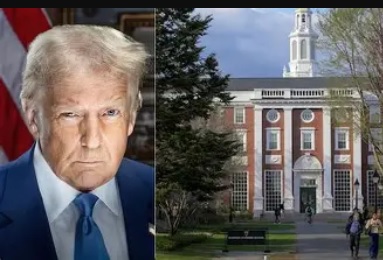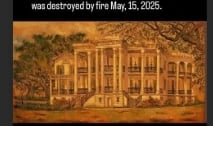The Palestinian Culture
Rami got me thinking last night ,and I do love rearch. It's important to understand the history to understand the culture and the hatered. Let's investigate the story!

A historical timeline of Israel's brutality towards Palestinians
, 9.97M subscribers, TRT is a Turkish public broadcast service. Wikipedia, 383,588 views Oct 12, 2024
The narrative around October 7 often overlooks the deep-rooted history of the Israel-Palestine conflict. This timeline reveals key events dating back to 1897, when the First Zionist Congress was held, through the Nakba in 1948, and decades of subsequent violence. The focus on a single day obscures a much longer story of displacement and systemic injustice that continues to affect Palestinians today. Subscribe: http://trt.world/subscribe Livestream: http://trt.world/ytlive Facebook: http://trt.world/facebook Twitter: http://trt.world/twitter Instagram: http://trt.world/instagram Visit our website: http://trt.world

USS Liberty - When Israel attacked the U.S.A. - Forgotten History
Rami mentioned it, and I had never heard about before.
, 909K subscribers, un 5, 2023 ✪ Members first on June 2, 2023 2 products
FORGOTTEN HISTORY tagged products below. Learn more
Beyond Treason Reflections on the Cover-up of the June 1967 Israeli Attack on the USS Liberty an American Spy Ship; Paperback; Author - Robert J Al...
$22.53
Earns commission
Forgotten History “Poster Series” Mug
$14.50
The USS Liberty was a floating CIA intelligence gathering platform monitoring all transmissions from all sources involved in the 1967 Six Day War. Israeli progress was followed as well as the Arab coalition of Egypt, Syria and Jordan. Hosted by Colin Heaton. Forgotten History is a 10th Legion Pictures Production. ============================================================================== Help support the USS Liberty Veterans by contacting them through their Facebook page here: / usslibertyvets Help support our channel: Patreon page: / forgottenhistorychannel Join this channel to get access to perks: / @forgottenhistorychannel Merch: Forgotten History Merchandise: https://fh-shop.fourthwall.com/ Now on Spotify: https://open.spotify.com/show/2OFlwcP... ================================================================================= Thanks for watching. Please subscribe using the link below so we can continue making new content. Your subscription to the channel means a lot to us! / @forgottenhistorychannel ============================================================================== About us: Host/Military Historian/Film Consultant/US Army and Marine Corps Veteran - Colin Heaton https://www.heatonlewisbooks.com Screenwriter/Director/Producer/US Marine Corps Veteran - Michael Droberg For collaboration and advertisements contact: droknows@hotmail.com https://www.michaeldroberg.com https://www.10thlegionpictures.com ============================================================================== Associated channel for sci-fi, fantasy, comedy, and film related topics: / 10thlegionpictures ============================================================================== -COPYRIGHT DISCLAIMER UNDER SECTION 107 OF THE COPYRIGHT ACT 1976
Copyright Disclaimer Under Section 107 of the Copyright Act 1976,
allowance is made for "fair use" for purposes such as criticism, comment, news reporting, teaching, scholarship, and research. Fair use is a use permitted by copyright statute that might otherwise be infringing. #forgottenhistorychannel

How three terrorist groups formed the Israeli Defence Forces (IDF) | The Big Picture
More info that Rami shared that is verifible!
, 3.3M subscribers, Oct 22, 2024 The Big Picture Podcast
Before the formation of the Israel Defense Forces in 1948, there were three underground Zionist militias - The Haganah, the Irgun and the Lehi. They differed in tactics and beliefs, and at times fought with each other - but together they terrorised Palestinian villages and executed attacks and bombings against the British to force them to give up control of the land. They blew up hotels in Jerusalem, embassies in Europe and assassinated a UN mediator. After Israel was officiated as a state - the three militias would create the IDF - and their leaders would go on to form Israel’s government, become politicians, ambassadors and Prime Ministers. And their dark history would be forgotten. This week on The Big Picture, we unpack that history. Subscribe and listen on all podcast platforms: https://thebigpicture.buzzsprout.com/ Middle East Eye Website: https://middleeasteye.net Follow us on TikTok: / middleeasteye Follow us on Instagram: / middleeasteye Like us on Facebook: / middleeasteye Follow us on Twitter: / middleeasteye

The History and Prophecy of Israel & Palestine - The Untold
, 1.03K subscribers, Sep 25, 2025 #sheikhuthman #ahmeddeedat #yusufestes
The History and Prophecy of Israel & Palestine - The Untold ▶ Subscribe and supports us. ▶ We "Exalted Islam" team will give the powerful reminders from Quran and authentic Hadith, Inshaa Allahu T'ala. #muslimspeakers #islam #sheikhuthman #ahmeddeedat #zakirnaik #yusufestes #quran #allah #muslim #palestine #prophetmuhammad #love #peace #hadith #muftimenk #motivation #inshaallah #viral #reminder #qurantranslation #quranverses #qurantilawat #quranic Disclaimer: This Video is made by Exalted Islam and all content, footages, audios and visuals are licensed to us.

The Lie That Created The Middle East
, 5.84K subscriber, Aug 8, 2025
How a backroom deal carved borders that still bleed. This video breaks down the Sykes–Picot Agreement, the promises made to Arab leaders during WWI, and how those lines shaped Iraq, Syria, Jordan, and Palestine for a century. From Sharif Hussein and Faisal to T. E. Lawrence, we follow the revolt, the memos, the maps—and the fallout.

ARE PALESTINIANS THE TRUE HEIRS OF ANCIENT ISRAEL – DNA and History Explained
, 33.9K subscribers, 35,400 views, Sep 24, 2025 #IsraelPalestine #Genetics #Histor
For centuries, Zionist claims to the land of Palestine have been rooted in the idea that Jews alone are the direct descendants of the ancient Israelites. But what if science, history, and even Jewish scholars reveal a different truth? Recent genetic studies show that Palestinians and Levantine Arabs preserve 70–90% continuity with ancient Judeans and Canaanites, while Ashkenazi Jews, who form the majority in Israel today, retain only about 45–55% Levantine ancestry, the rest being European. This video explores the genetic evidence, the historical timeline of conversions from Judaism to Christianity and Islam, and the voices of Jewish scholars who admit Palestinians may in fact be the true heirs of the “chosen people.” For argument’s sake, let’s ask: Who has the stronger ancestral claim to the land? 00:00 Introduction - Zionism’s Central Claim 01:12 Chosenness as a Bloodline 02:03 The People Who Stayed 02:58 From Judean to Christian 03:45 From Christian to Muslim 4:44 The Kandari Chronicles Message 05:08 Genetics and Scientific Insight 08:48 Ashkenazi Jews and the Distance from the Land 09:49 Abraham’s Children Today 10:38 The Covenant Reconsidered #IsraelPalestine #Genetics #History #DNA #AncientIsrael #Palestine #MiddleEast #Arabs #Jews #Ashkenazi #Sephardi #Mizrahi #Canaanites #Judeans #Zionism #ChosenPeople #PromisedLand #Levant #BiblicalHistory #Archaeology #GeneticStudies #Ancestry #Lineage #Palestinians #Judaism #Islam #Christianity #Heritage #Continuity #Truth Reference: Nebel, A., Filon, D., Weiss, D. A., Weale, M. E., Faerman, M., Oppenheim, A., & Thomas, M. G. (2000). High-resolution Y chromosome haplotypes of Israeli and Palestinian Arabs reveal geographic substructure and substantial overlap with haplotypes of Jews. Human Genetics, 107(6), 630–641. Behar, D. M., Yunusbayev, B., Metspalu, M., et al. (2010). The genome-wide structure of the Jewish people. Nature, 466(7303), 238–242. Haber, M., et al. (2017). Continuity and admixture in the last five millennia of Levantine history from ancient Canaanite and present-day Lebanese genome sequences. American Journal of Human Genetics, 101(3), 274–282. Oppenheim, A., et al. (2000). High-resolution Y chromosome haplotypes of Israeli and Palestinian Arabs reveal geographic substructure and substantial overlap with haplotypes of Jews. Human Genetics, 107(6), 630–641. Elhaik, E. (2013). The Missing Link of Jewish European Ancestry: Contrasting the Rhineland and the Khazarian Hypotheses. Genome Biology and Evolution, 5(1), 61–74. Subscribe: https://bit.ly/3jCXuCw: TKC Membership: / @thekandarichronicles Instagram: www.instagram.com/tareqkandari Twitter: www.twitter.com/tareqkandari Patreon.com/TheKandariChronic...
Catholism in the Middle East
AI Overview
Catholicism originated in the Middle East and was a dominant religion there until the 7th-century Islamic conquests, after which its presence declined significantly
. Today, the Catholic presence consists of various Eastern Catholic Churches (like the Maronites, Syriacs, and Chaldeans) and the Latin Church, which employ distinct rites and liturgical traditions but are in full communion with the Pope. While Catholic populations in the Middle East have decreased due to factors including historical persecution, emigration, and modern conflicts, communities persist, particularly in Lebanon, and there is a significant diaspora of Middle Eastern Catholics around the world.
Early Christianity and the Rise of Eastern Churches
Origins:Catholicism, with its roots in the 1st century AD, was a major religion in the Middle East from the 4th-century Byzantine era until the 7th-century Arab conquests.
Council of Chalcedon (451 AD):This council led to a doctrinal split with many Oriental Orthodox churches, creating divisions that would later influence the formation of Eastern Catholic Churches that remained in communion with Rome, such as the Maronites and Chaldeans.
Maronite Church:This is the largest of the Eastern Catholic Churches in the Middle East, with a strong presence in Lebanon and smaller communities elsewhere. They trace their history back to the 4th century and have consistently maintained their communion with the Pope.
The Crusades and Latin Presence
Crusades:The Crusades introduced a more prominent Roman Catholic presence in the region, establishing Latin Rite churches and communities that often had European descent.
Maronite Union:During the Crusader period in the 13th century, the Maronite Church entered into full communion with the Roman Catholic Church.
Post-Conquest Decline and Modern Challenges
Islamic Conquests:After the 7th-century conquests, Christianity's influence in the region diminished, with Muslim populations becoming the majority.
Demographic Decline:The presence of Christians, including Catholics, has drastically decreased in many Middle Eastern countries due to historical events like the Armenian and Assyrian genocides during WWI, ongoing conflicts such as the Syrian Civil War, and economic factors leading to emigration.
Current Situation:While large diaspora communities of Middle Eastern Catholics exist in places like the Americas, the populations within the Middle East, though reduced, remain. Lebanon still has a significant Christian population, including the Maronite Church, which is in communion with the Pope.
Present-Day Catholic Presence
Eastern Catholic Churches:These include the Maronite, Syriac, Chaldean, and Melkite Greek Catholic Churches, each with their own unique liturgical traditions and self-governing patriarchs.
Latin Church:This is the branch of the Catholic Church that uses the Latin Rite, and it has a smaller, dispersed presence in the region, with communities in countries like Jordan, Palestine, and Cyprus.
Who are the Catholics of the Middle East? | USCCB
Seven Catholic Churches or "Rites," each bearing a great and ancient history with unique liturgical traditions and culture, comprise the Catholic Church in the ...
usccb
Background on Catholic Churches in the Middle East | USCCB
The Chaldean Catholic Church has over 600,000 members, with about 45 percent residing in the Middle East. The Chaldeans are historically concentrated in Iraq as...
usccb
Catholic Church in the Middle East - Wikipedia
The Catholic Church in the Middle East is under the spiritual leadership of the Pope in Rome. The Catholic Church is said to have traditionally originated in th...








Maronites in Israel and Palestine, particularly in the Galilee region
AI Overview
Maronites live in both Israel and Palestine, particularly in the
Galilee region and East Jerusalem/West Bank, respectively, with their religious affairs overseen by the Maronite Catholic Archeparchy of Haifa and the Maronite Catholic Patriarchal Exarchate of Jerusalem and Palestine. While many in the historic Palestinian villages of Iqrit and Kafr Bir'im were expelled by Israel in 1948, a Maronite community survives, and new communities have also developed.
Community and Jurisdiction
Israel:A significant Maronite community exists, with some 10,000 members registered under the Maronite Catholic Archeparchy of Haifa and the Holy Land.
Palestine:The Maronite Catholic Patriarchal Exarchate of Jerusalem and Palestine serves the Maronite faithful in East Jerusalem and the West Bank.
Historical Context:Historically, a large Maronite presence was in villages like Iqrit and Kafr Bir'im, which were depopulated in 1948.
Religious and Cultural Aspects
Aramaic Language:Maronites share a cultural heritage with Arameans, and their liturgical language is Aramaic.
Catholic Church:The Maronites are a Catholic denomination, with both the Israeli and Palestinian jurisdictions reporting to the Maronite Patriarch of Antioch.
Aramean Identity: Since 2014, some Maronites have successfully registered as Arameans, an ethnic classification separate from Israeli Arabs.
Challenges and Identity
Displacement:The 1948 War led to the expulsion of Maronite villagers from Iqrit and Kafr Bir'im, creating a refugee community that has faced significant hardship in returning to their homes.
Regional Politics:The Maronite community in Israel faces challenges due to the political conflict with Lebanon, even resorting to using the Palestinian passport as a go-between for travel to the homeland.
Culture
Culture
Ask yourself is Trump changing our culture and how?
Black History is being rewritten
The Statue of Liberty is crying as we persecute immigrants. I think France is going to ask for her back.
Billionaires are making poop people poorer, and children will starve.
Gay Rights are being trashed.
Women are losing bodily autonomy.
Diversity is bad.
Education from our youngest to colleges is changing. They are trying to eliminate the Department of Education taking away programs that help at risk youth, school lunches, diversity, social services, and more. Colleges are being threatened to accept Trump's version of things. Foreign students are being prevented from coming here. Research is being eliminate. Prayer is becoming part of curriculum in several states. Some states are even teaching that Trump won the election in 2020
Children will die with the changes in vaccination poliies.
And there is more coming.
Please check out these stories and videos:
Nottoway Plantation in Louisiana
Story by Kaitlyn Greenidge• 1w •10 min read Harper's Bizarre
n May 2025, Nottoway Plantation in Louisiana, the largest remaining antebellum mansion in the South, burned to the ground. Images of the big white columns at the front of the house engulfed in flames spread across social media. At first, they were accompanied only by the original audio of the wood burning. Many people noted it sounded like applause. But then came the remixes. People played gospel songs, hymns, Beyoncé’s latest country track, and perennial cookout bangers over the footage. “It’s like our ancestors are celebrating” was a common refrain. But others insisted that Nottaway Plantation could have been used as an educational space, despite the fact that it is primarily a resort and wedding venue and reports suggest staff avoided discussing the historical realities of enslavement.
The burning of Nottoway Plantation and its remixes are a perfect encapsulation of America’s current confusion around Black history. Black history contains stories of triumph and joy, but cannot be understood outside of the brutality of systemic racism. Do institutions acknowledge these complications and contradictions, at the risk of making some visitors uncomfortable?
Nottoway Plantation House, before the fire.© DEA / F. BARBAGALLO - Getty Images
As we approach Juneteenth, Black historical sites and cultural centers have found themselves under attack by the current administration. Juneteenth is perhaps a symbol of this fraught back and forth. A holiday originally celebrated by formerly enslaved Black people in parts of Texas to acknowledge the piecemeal nature of the abolition of slavery, it was federally recognized in 2021 by the Biden administration. It was a commendable impulse, but the recognition coming in the wake of the killing of George Floyd and the Black Lives Matter protests that followed, has seemed to some critics as political pandering and less a desire for real change.
This can feel like a frightening moment for anyone who cares about history or truth. But it helps to remember that the origin of so many Black-history museums comes not from the federal government or elected officials deciding this history is important, but from ordinary people preserving and fighting for the truth about our past. This past spring, I spoke with leaders of Black historical and cultural sites in New York, Massachusetts, Louisiana, and Kansas. The picture they painted of the future was both harrowing and inspiring.
A key part of the Trump’s regime’s psychic assault on the perceived gains of the Civil Rights Movement is relegislating the past—restoring the names of military bases to those of Confederate soldiers, firing the first Black female Librarian of Congress. Though the racial wealth gap persists, what the Civil Rights Movement did succeed in was breaking the illusion of a white nation and of American culture meaning solely white, Christian culture. The Black cultural gains of the last 70 years have been immense. This administration understands the soft power of culture and so has made culture and history makers its prime target in a propaganda war over what America actually means.
When the Trump administration came to power in January, among its first acts was to “scrub” government digital sites of Black history, deleting pages about Jackie Robinson, Harriet Tubman, and others from military and park service websites, though some information was restored amid public outcry. In March 2025, though, President Trump made his intentions plain. In an executive order titled “Restoring Truth and Sanity to American History,” Trump proclaimed, “Over the past decade, Americans have witnessed a concerted and widespread effort to rewrite our Nation’s history, replacing objective facts with a distorted narrative driven by ideology rather than truth. …Under this historical revision, our Nation’s unparalleled legacy of advancing liberty, individual rights, and human happiness is reconstructed as inherently racist, sexist, oppressive, or otherwise irredeemably flawed.” In the order, Trump singled out the Smithsonian Institution and the National Park Service for including programming and artwork that acknowledges race as a social construct and racism as a part of American power structures. Throughout the spring, the administration defunded the Institute of Museum and Library Services (IMLS), the premier source of federal funding for museums across the United States, and cut funding from the National Endowment for the Humanities (NEH), an organization that funds much of the scholarship on American history in the nation’s universities and colleges.
This president was elected in part because of the manufactured hysteria around “DEI” and earlier “critical race theory.” This was a campaign orchestrated by far-right activist Christopher Rufo, who rightly bet on white America’s deep unease and defensiveness around histories of anti-Black racial violence to bolster a wave of backlash to the so-called Racial Reckoning of 2020 that would carry Trump back into power.
How are museums and cultural centers that focus on Black history responding to this moment? Perhaps it is best to look to the Schomburg Center for Research in Black Culture, which celebrates its 100th anniversary this year. Originally a collection at the West 135th Street branch of the New York Public Library in Harlem, the Schomburg was founded in 1925 by an interracial group of librarians in response to an overwhelming demand from the public for books by and about Black people. It was named after the Afro-Puerto Rican archivist Arturo Alfonso Schomburg, whose collection of books and art by members of the African diaspora made up the basis of the original collection. The Schomburg has, for 100 years, served as the premier research institution on Black life, art, and culture in the world.
Today it holds such treasures as parts of Malcolm X’s archives, documents signed by Haitian liberator Toussaint L’Ouverture, and an art collection that includes works by Lorna Simpson and Harlem Renaissance masters. In a previous life, I spent countless hours there as a research assistant, poring over the archives of Black newspapers from the 1920s, reading the long dead but still scandalous gossip columns of the Harlem Renaissance.
The Schomburg is part of the New York Public Library, a designation that shields it from much federal interference. Even so, the director, Joy Bivins, tells me, “Our membership is always committed 10 toes down to the preservation of materials related to Black history and culture, and our board is as well.” Bivins reminds me that the Schomburg was founded in 1925. That was a few years after the end of the Woodrow Wilson presidency, which effectively decimated the burgeoning Black middle and upper classes by segregating the federal workforce—a move the current administration has sought to mirror in its attacks on federal workers, who are disproportionately African-American. “All of the things that we are experiencing at this moment” in 2025, Bivins tells me, “does not in any way compare with what the women and men who started this organization were experiencing, because they were still in a legally segregated society.”
“If people believe in this work, they have to support it,” Bivins says. Luckily, the Schomburg relies on very little federal funding. “But we know that’s not the case for every [Black history] organization,” Bivins says. Part of the future of the Schomburg will include “intervening where we can” to help preserve sites across the country.
Rev. Al Sharpton on the June 19, 2025 edition of© TheWrap
MSNBC's "Morning Joe" recognized Juneteenth this year by speaking with legendary American civil rights activist Rev. Al Sharpton, who advised wisdom and reflection at a time when "history is being challenged" in the United States.
Officially recognized as a federal holiday in 2021, Juneteenth celebrates June 19, 1865, when American Major General Gordon Granger orchestrated the final enforcement of the Emancipation Proclamation in Texas around the end of the Civil War. Recognizing this, Sharpton told "Morning Joe" hosts Joe Scarborough and Mika Brzezinski, "I think that as we are going to celebrate this holiday, we should also take a real measure of where we are."
"The fact of the matter is that those in Texas who were enslaved knew nothing about the Emancipation Proclamation, knew nothing about freedom. Those that were freed on that day of Jan. 1, 1863, [when] Lincoln signed were in the Confederate States, not the Free States," Sharpton explained. "Those slaves in the Free States weren't freed until the 13th Amendment. Even then, people in Texas weren't freed until General Granger came in [on] this day in 1865 and let them know they were free."
"All of this is American history, and certainly history for African Americans," he continued. "History is being challenged to be taught in certain schools under this administration, and some states are trying to eliminate [it]. I don't think that is healthy, not only for those of us [who] are the ones that have ancestors that were enslaved. It's not healthy for the country to show the progress this country made in fighting slavery -- of instituting the Emancipation Proclamation."
Chuck Todd Sounds Off On Trump’s Impact On American Life: ‘Unlike Anything I’ve Seen In My Lifetime’
Story by Charlie Nash
Former NBC News chief political analyst Chuck Todd declared on Thursday that President Donald Trump would go down in history as the most consequential American president since Franklin D. Roosevelt during a monologue about living in “the age of Trump.”
Reacting on The Chuck ToddCast to the ten-year anniversary of Trump’s golden escalator ride at Trump Tower – which marked the beginning of his 2016 Republican presidential campaign – Todd said, “Let’s just say, it’s been a transformational ten years for the Republican Party, for American politics, for Washington, D.C., for the global world order. It’s not been small.”
He continued:
In fact, there was a moment in my recent Noosphere conversation with Steve Bannon… where he turned to me looking for some affirmation about an issue and he asked, he goes, “Will you concede we are living in the age of Trump?” and I didn’t hesitate because he’s right. I said yes, because we are.
In fact, its been ten years since Donald Trump descended down that escalator and ten years since a reality TV host, real estate promoter entered the political bloodstream, and whatever you want to call the moment – performance art, populist revolt, ego trip – it has turned into something far more enduring. One flukey win in the electoral college could have been chalked up as an accident of history, and in fact if he had only won in ’16 and never come back, that is how he would have been seen, an accident of history, more like Jimmy Carter or somebody like that.
But what’s followed? The staying power of Trump. The man, the movement, and now the comeback. It’s not an accident, it looks like we’re in the middle of a realignment. We’re not talking about a blip, we’re talking about a decade, which means we’re probably gonna be talking about a generation.
Todd remarked, “You might say he’ll just be a chapter in the history books, but I’d argue he’ll be a long chapter. He’s already gonna be a longer chapter than Grover Cleveland, the last guy to serve non-consecutive terms as president. He’ll be longer than most modern presidents because Trump didn’t just change his party, he changed the job, he changed the expectations, and he’s changed the culture, and that’s probably the biggest impact he’s made.”
The former NBC News host concluded, “In fact, Donald Trump’s impact on American politics and society is unlike anything I’ve seen in my lifetime. It’s greater than Obama, something I would not have conceded a few years ago. It’s greater than Clinton. It’s greater even than Reagan. You’d probably have to go back to FDR to find an American president who so thoroughly did a couple of things. He redefined the boundaries of the presidency and the shape of the national psyche.”


The Trump administration’s battle with Harvard University will be aired in court Monday, when a federal judge will hear arguments in the school’s lawsuit challenging the government’s attack on its federal research funding.
At stake is more than $2 billion, nearly a thousand grants funding ambitious scientific research and the overarching question of how much control the federal government can exert over a private university.
Lawyers for Harvard are expected to argue that the government’s actions to freeze and cut funding are unconstitutional and unlawful. They say the administration has violated legal procedures in an attempt to force the nation’s oldest university to submit to the president’s political agenda. Lawyers for the Trump administration are expected to argue that Harvard has failed to address antisemitism on its campus and that its alleged actions make it ineligible for federal funding
The university has made numerous changes on campus to address antisemitism, but the administration contends it is not enough.
Here are some of the key events in the administration’s campaign against Harvard:
Trump campaign platform says he will make ‘college campuses safe and patriotic again’
The Republican Party’s formal campaign platform pledges to make colleges and universities “sane” and promises to pursue civil rights cases against them. President Donald Trump also includes concerns about alleged antisemitism in his campaign platform in response to pro-Palestinian campus protests over the Israel-Gaza war.
The time has come to reclaim our once great educational
Video Player is loading.
The Washington Post
Trump: American universities full of ‘Marxist maniacs’
Jan. 9, 2025
Justice Department pick signals focus on Harvard
Attorney Leo Terrell is tapped by Trump to join the Justice Department and will soon become chair of its Joint Task Force to Combat Antisemitism.
In October, Terrell posted on X in response to a report that Harvard had lost donor money following pro-Palestinian campus protests: “Harvard will lose much more effective January 2025. America will no longer fund Jew Hating Schools!”
Feb. 3
Trump administration alleges antisemitic incidents at university graduations
The Health and Human Services Department’s Office for Civil Rights announced an investigation into four medical schools, including Harvard’s, after some graduates wore pro-Palestinian symbols during commencement ceremonies.
Trump administration announces formation of its antisemitism task force
March 8
Trump task force chair says universities have been ‘hijacked’ by leftists
We’re going to bankrupt these universities. We’re going to take away every single federal dollar. That is why we are targeting these universities.
Leo Terrell
Current Time 0:00
/
Duration 0:56
The Washington Post
Justice Department to investigate antisemitismMarch 10
Trump administration investigates 60 schools for alleged antisemitism
Harvard is one of the universities that receives a letter from the Education Department’s Office for Civil Rights warning it to “protect Jewish students” or face potential government punishment.
March 31
More than $8.7 billion in funding to Harvard is put under review
The Trump administration's antisemitism task force says it will review billions in federal grants and contracts to Harvard University and its affiliates, which include hospitals.
April 11
Faculty union sues Trump administration
The government has unlawfully used federal funding and civil rights enforcement authority to undermine Harvard’s academic freedom and free speech on campus, the Harvard faculty chapter of the American Association of University Professors alleges in a lawsuit filed in federal court.
Harvard faculty have the constitutional right to speak, teach, and conduct research without fearing that the government will retaliate against their viewpoints by canceling grants.
Andrew Manuel Crespo, AAUP-Harvard Faculty Chapter general counsel and Harvard law professor
Trump vs. Harvard: A timeline of how the fight escalated
April 11
In unprecedented step, U.S. government orders Harvard to make sweeping changes
The Trump administration sends a letter to Harvard accusing the school of allowing rampant antisemitism. The government demands that the university restructure its student discipline policies; shed diversity, equity and inclusion practices; change its governance, hiring and admissions practices; and yield to extensive government oversight to keep its federal funding. Its requests include allowing a government-approved auditor to investigate Harvard’s student body, faculty, staff and leadership for “viewpoint diversity.”
April 14
Harvard rejects Trump administration’s demands
The government’s demands exceed the government’s authority and violate Harvard’s First Amendment rights, Harvard University President Alan M. Garber says in a letter to the campus community.
Harvard receives support from students, alumni and colleges nationwide.
The University will not surrender its independence or relinquish its constitutional rights.
Alan Garber, president of Harvard University
Harvard University President Alan Garber reacts to sustained applause from graduates and faculty at the beginning of commencement exercises Thursday in Cambridge, Massachusetts.© Josh Reynolds/For The Washington Post
April 14
The Trump administration says it will freeze $2.2 billion in funding to Harvard
The administration responds with a major hit to scientific and medical research at Harvard.
April 16
Trump administration asks IRS to revoke Harvard’s tax-exempt status
The Treasury Department asks the Internal Revenue Service’s top attorney to revoke Harvard’s status, The Washington Post reports.
On Truth Social, the president writes that Harvard “is a JOKE, teaches Hate and Stupidity, and should no longer receive Federal Funds.” Trump baselessly claims Harvard hires “almost all woke, Radical Left, idiots and ‘birdbrains’ who are only capable of teaching FAILURE to students and so-called ‘future leaders.’”
Students walk outside of Harvard Yard at Harvard University on Tuesday.© Faith Ninivaggi/Reuters
April 16
Government cancels $2.7 million for Harvard
Two Department of Homeland Security grants are revoked from Harvard, DHS Secretary Kristi L. Noem says in a harshly worded statement.
With anti-American, pro-Hamas ideology poisoning its campus and classrooms, Harvard’s position as a top institution of higher learning is a distant memory.
Kristi Noem, secretary of homeland security
April 16
Government threatens Harvard’s ability to enroll international students
DHS makes a new threat: to revoke Harvard’s Student and Exchange Visitor Program (SEVP) certification unless the university provides information about alleged illegal or violent activities by international students by April 30.
April 17
Trump administration opens investigation targeting foreign ties
Education Secretary Linda McMahon accuses Harvard of providing incomplete information about foreign gifts and contracts. Her department orders Harvard to provide extensive information about foreign funds and international students and raises an additional alleged concern over whether Harvard is being manipulated by foreign entities.
A spokesman for Harvard says the university for decades has provided reports about gifts and contracts from foreign sources exceeding $250,000 annually.
April 21
Harvard sues the Trump administration over funding freeze
The university asks a federal court to stop the Trump administration from withholding federal funding. Harvard alleges that the government overstepped its authority, failed to follow legal regulations and procedures before taking punitive action, and unlawfully attempted to “coerce and control” Harvard in violation of the First Amendment.
The university also says the government cannot “identify any rational connection between antisemitism concerns” and the research funding grants it has frozen.
Garber says complying with the administration’s demands would give the government “unprecedented and improper” control over the university.
© Harvard University website
April 21
Funding loss will cause a severe impact to scientific research, Harvard says
Freezing billions in federal funding dramatically threatens medical and other research, jeopardizes the livelihoods of faculty and students and threatens America’s position as a global leader, Harvard contends in its suit.
Work on treating cancer, preventing dementia, mitigating military battlefield trauma and other goals key to human health is put at risk, Harvard’s lawyers argue.
Trump vs. Harvard: A timeline of how the fight escalated
April 25
Trump administration opens investigation targeting hiring practices
The Equal Employment Opportunity Commission opens a new inquiry against the university that it says will determine whether Harvard has violated civil rights law in hiring. The government cites a fellowship program that encouraged students of color to apply and an internship program for underrepresented minority students, the type of diversity programs the Trump administration has framed as discriminatory.
April 28
Trump administration opens investigation into Harvard Law Review
The government alleges that the prominent law journal considered race in article selection, and opens civil rights investigations into both the university and the independent student-run journal. The Harvard Law Review denies the allegations.
The government’s source for the reports, a student who had been an editor at the law review, is given a job in the White House.
May 5
Federal government will no longer provide funding to Harvard, education secretary says
In a scathing letter, McMahon escalates the administration’s allegations against Harvard, accusing the university without detailed evidence of engaging in a systemic pattern of violating federal law and failing to provide “any semblance of academic rigor.”
University officials said Harvard would continue to comply with the law and combat antisemitism — and that the letter threatened to illegally withhold funding for research in retaliation for its lawsuit.
May 13
Government terminates $450 million in grants
The Joint Task Force to Combat Anti-Semitism announces an additional funding cut to Harvard as punishment for its alleged failure to address the Trump administration’s accusations of antisemitism on campus.
May 19
Trump administration cuts an additional $60 million in grants
May 22
Government revokes Harvard’s ability to admit international students
Following through on its threat, the DHS moves to ban Harvard from enrolling foreign students by terminating its SEVP certification. Noem cites Harvard’s “refusal to comply” with the government’s requests for information on its foreign students and gives the school 72 hours to provide it.
Noem says all international students currently at Harvard — more than a quarter of the school’s enrollment — must transfer or lose their legal status in the United States.
May 23
Harvard sues the Trump administration over ban on international students
The university asks a federal judge to intervene, alleging that the revocation of its SEVP certification violates the First Amendment and other regulations and constitutes more retaliation by the government for Harvard’s refusal of its demands “to control Harvard’s governance, curriculum, and the ‘ideology’ of its faculty and students.” Harvard’s lawyers say the government’s move would have far-reaching effects on the lives of thousands of students.
Members of Harvard's community at a rally in support of the school's international students on Tuesday.© Rick Friedman/AFP/Getty Images
May 23
Federal judge temporarily blocks the administration
The government is barred from revoking Harvard’s certification to enroll international students while the court challenge to it unfolds, U.S. District Judge Allison D. Burroughs orders.
© Harvard University website
May 26
Trump suggests revoking $3 billion more from Harvard
Trump, a day after repeating the government’s demand for the “names and countries” of Harvard’s international students, says he is considering taking $3 billion in grant funding from Harvard to give to trade schools.
We are still waiting for the Foreign Student Lists from Harvard so that we can determine, after a ridiculous expenditure of BILLIONS OF DOLLARS, how many radicalized lunatics, troublemakers all, should not be let back into our Country. Harvard is very slow in the presentation of these documents, and probably for good reason!
Donald Trump
May 27
Government threatens more federal contracts with Harvard
Citing a litany of complaints, including allegations of racial discrimination in Harvard’s admissions process and hiring practices, the General Service Administration directs all federal agencies to review their contracts with Harvard. The agency cited what it said were admissions statistics for a certain subset of applicants that showed lower admission rates for White and Asian students.
May 29
Harvard University commencement speaker urges ‘shared humanity’
May 30
State department singles out Harvard student visas for extra vetting
With its attempt to ban international students blocked by the court, the administration instead directs U.S. embassies and consulates to complete additional vetting for people requesting visas to travel to Harvard, including screening their social media accounts. A State Department memo says the policy applies not just to students but to faculty, workers, guest speakers and tourists.
June 4
Trump attempts to suspend entry of international students to Harvard
Trump issues a proclamation declaring that Harvard’s refusal to respond to DHS’s request for information on foreign students creates a national security concern that necessitates barring international students and scholars from entering the country to study, conduct research or teach at the school.
Presidential proclamations typically do not have the force of law.
Harvard says the proclamation “is yet another illegal retaliatory step taken by the Administration in violation of Harvard’s First Amendment rights.”
June 5
Court blocks Trump from targeting Harvard student visas
The State Department directs consulates to reject visa applications from people planning to attend Harvard. The university asks a federal judge to block the government’s action, and the court grants the university’s request late that evening.
A Harvard graduate with a message in support of international students on her mortarboard sits with fellow students at the start of commencement exercises on May 29.© Josh Reynolds/For The Washington Post
June 6
State Department reverses course
Following the court ruling, the State Department tells consulates to resume processing visa applications for students seeking to attend Harvard.
June 10
House Republicans say they’re investigating Harvard’s hiring practices
Citing the administration’s concerns about Harvard allegedly discriminating by considering race in hiring, the House Committee on Education and Workforce tells Garber in a letter it has opened an inquiry.
June 24
White House tries to negotiate with Harvard as court dates approach
A month before the parties are set to go to court, Trump administration officials indicate the government is hoping to make a deal with Harvard. A few days earlier, Trump claimed on Truth Social that a “‘mindbogglingly’ HISTORIC” deal could be announced within a week, which does not occur.
June 30
Trump administration completes first investigation into Harvard
The administration’s Joint Task Force to Combat Anti-Semitism notifies Harvard that the government finds it in “violent violation” of federal civil rights law for allegedly failing to protect Jewish students on campus.
Harvard’s lawyers say in a new court filing that the government has not documented any meaningful investigation into antisemitism at the university.
July 9
Trump administration reports Harvard to its accreditor
The Education and Health and Human Services departments notified Harvard University’s accreditor that the school allegedly violated federal civil rights laws and may fail to meet the commission’s standards for accreditation, the agencies announced Wednesday.
Jason Newton, a spokesman for Harvard, says the school strongly disagrees with the government’s findings.
The administration’s ongoing retaliatory actions come as Harvard continues to defend itself and its students, faculty and staff against harmful government overreach aimed at dictating whom private universities can admit and hire, and what they can teach.
Jason Newton
0
0
3 U.S. Marine brothers faced toughest mission: Getting their dad freed from ICE custody
From left, Emanuel, Alejandro, Narciso and Jose Luis Barranco.
(Alejandro Barranco)
By Nathan Solis
Staff WriterFollow
July 22, 2025 3 AM PT
Narciso Barranco, an undocumented landscaper in Orange County, instilled a sense of pride for his adopted country in his three American-born sons.
All three boys joined the Marines, which they saw as a sound start for a better life in the United States.
Then, in June, Barranco was grabbed by masked federal immigration agents while working on the job.
His arrest went viral on social media, with some outraged at images of the agents beating Barranco. For the last month, his family waded through the federal immigration system under the Trump administration. Narciso, 48, was born in Morelos, Mexico, and arrived in the United States more than 30 years ago, where he married a U.S. citizen and had three sons.
Within hours of his arrest, his eldest son was talking to reporters and pushing for his release. The sons’ service in the U.S. military kept a media focus on his case, and thanks to a variety of interviews his eldest son provided, the case remained in the news cycle.
Narciso Barranco was finally released on bond after spending 24 days in custody, but he still faced an uncertain future
Narciso’s best advocate as his case moves forward is his 25-year-old son Alejandro Barranco, a Marine veteran who served as an engineer equipment mechanic and was deployed to Afghanistan during the U.S. withdrawal from the country.
The junior Barranco has tried his best to rescue his father’s livelihood since the arrest. He took up his father’s work as a landscaper and put his own work on hold. He’s waited outside federal detention facilities — first in Los Angeles and then in Adelanto — just to see his father or to attend immigration court hearings.
“It has for sure been an irritating process, to see how poorly they treat the people who are trying to get access to their families in these places,” Alejandro Barranco said. “It’s either unprofessional or they’re doing all of this poorly to treat people with this type of disrespect.”
Alejandro served in the Marines from 2019 to 2023. He was honorably discharged and is now a landscaper like his father and is working to become a licensed contractor.
Alejandro Barranco checks his phone as he arrives to check on his father Narciso.
Alejandro’s younger brothers, Emanuel and José Luis, are serving in the Marines and stationed at Camp Pendleton.
They’re unable to speak to the media about their father’s treatment so Alejandro Barranco has become the family spokesperson. While they’ve remained quiet about the whole ordeal, they have attended their father’s court hearings and provided their support in private.
It was a source of pride for the Barranco family that all three sons joined the military, Alejandro Barranco said. His parents raised him and his brothers to be educated and to be as helpful as possible to their country.
“That was just how they raised us and it was something that my family were proud of,” Alejandro Barranco said.
The agents grabbed Narciso Barranco on June 21 outside a Santa Ana IHOP while he tended to some grass with a weed whacker. He wore sun glasses and a baseball cap, unaware that the agents were coming for him.
Video released by immigration officials showed agents pepper-spraying and beating Barranco before hauling him off to an overcrowded federal detention facility 80 miles away in San Bernardino County.
Narcisco Barranco was released by an immigration judge on bond on July 15.
His family is thrilled to have him home but is still worried about Barranco’s health, unsure if he received a concussion from his arrest that went unnoticed while he was in the federal detention.
Alejandro Barranco talks on his cell phone outside the Metropolitan Detention Center.
“He has a lot of headaches, and some pain in his shoulder,” Alejandro Barranco said about his father’s condition after he was released from the Adelanto detention facility.
It’s been a shocking ordeal, especially with how the federal government said that Narciso Barranco attacked the immigration agents who arrested him and repeatedly punched him in the head while he was on the ground. Alejandro Barranco said that his father was surprised to hear that detail, but he has not been charged with assaulting any federal officials.
He’s read his father the messages of support posted on social media he’s received from strangers and tried to reassure his father that people are watching his case.
“I keep reading to him the names of the people who support him online, how people are talking about his situation,” Alejandro Barranco said. His father is taken aback but is still having some difficulty processing what has happened.
His father was injured during his arrest, according to Alejandro. But days after, the only thing the father wanted to know was how his truck and landscaping equipment were accounted for. He asked his son to take over his work, Alejandro said
The fact that three of his sons are serving or have served the U.S. government has not deterred Narcisco Barranco from wanting to become a citizen.
“I’m making sure that my father’s story is told and I’m also making sure that people know what a hard worker he is,” Alejandro Barranco said.
“It’s disappointing that my parents worked so hard raising us and that their three boys who were willing to make the ultimate sacrifice for this country now find themselves going through all of this. Being taken away like this. It’s just rather sad that it’s come to this,” he added.
It’s unclear why the masked federal agents singled out Barranco
The Dept. of Homeland Security shared the video on social media and said Barranco attacked the agent with his gardening tool. Video of the attack shows Barranco hold up his weed whacker as a masked federal agent shoots pepper spray at him.
“The agents took appropriate action and followed their training to use the minimum force necessary to resolve the situation in a manner that prioritizes the safety of the public and our officers.
Ramirez, Barranco’s attorney, called the federal government’s arrest tactics “arbitrary, careless and they include racial profiling and go beyond racial profiling.”
Barranco was briefly held at a detention facility in Los Angeles and then transported to the Adelanto ICE Processing Center in San Bernardino County. The facility is overseen by Immigration Customs and Enforcement and GEO Group, a Florida-based private prison corporation.
The facility has seen a massive increase in detainees since the Trump administration started its indiscrimate arrests across Southern California.
The facility held around 300 people near the end of April and now holds around 1,600 people, according to the Inland Coalition for Immigrant Justice .
Barranco said the conditions at Adelanto were subpar, according to Ramirez.
Federal inspectors who visited the facility last month reported inadequate medical care and not enough guards to operate the facility. Some people wore the same clothes for 10 days in a row due to a lack of essentials at the facility.
Barranco declined to speak to the media following his release from Adelanto. He applied for parole in place, which allows certain undocumented immigrants to remain in the country pending a change in their immigration status. The federal government is seeking to remove him from the country, Ramirez said, and due to the pending removal he’s not legally able to work, according to Ramirez.
“He’s very eager to go back to work and to go back to contribute to his household,” but he’s not legally allowed to work waiting pending his application for a parole-in-place.
Barranco is now trying to learn English through online classes, Alejandro Barranco said. His father is humbled by the show of support his family has shown him online.
But the whole experience has also left him changed, Alejandro Barranco said.
“He seems scared. He’s confused and I think he’s just overwhelmed by everything we’re telling him,” Alejandro Barranco said. “He’s a hardworking, kind person who is always there to help. He inspires a lot of people. His close friends were devastated. He’s just a nice person.”
Watch it on Daily Beast
More to Read













